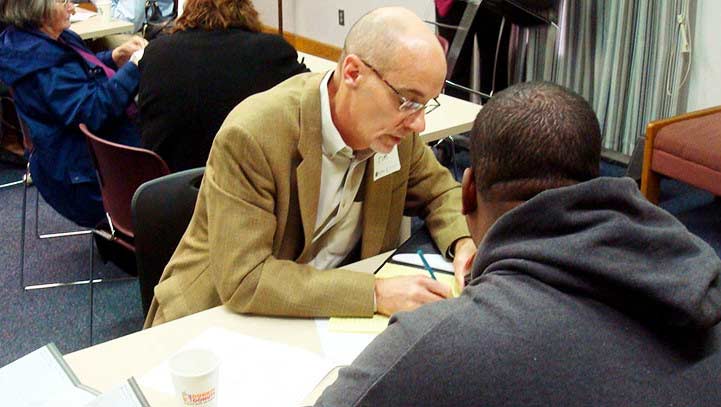
August 6, 2015
Now that it’s become so much harder for civil law attorneys to find and keep new clients, a large percentage of them no longer believe they can afford to help many pro bono clients. While their financial concerns may be legitimate, the fact remains that far too many poor Americans are now being forced to handle both urgent and complex legal matters on their own in court.
According to Maria Smith, supervising attorney of the Legal Society of Cleveland, clinics like hers “just don’t have the resources to represent most people facing eviction, or other critical legal problems.” In fact, Ms. Smith told a reporter for The American Lawyer that her “nonprofit is still depleted from [funding] cuts made during the recession, down to 40 lawyers from 55. Last year it had to turn away 57 percent of the more than 17,000 legal matters of all kinds that people brought to them.” (See: The Justice Gap: How Big Law is Failing Legal Aid .”)
How are most legal aid or legal clinics funded?
At present, “the largest element of the civil legal aid system is comprised of the 134 programs funded and monitored by the LSC (Legal Services Corporation).” However, while LSC remains “the largest single funder . . . far more [money] comes from states, [other public funds] and IOLTA (Interest on Lawyers Trust Accounts) programs than LSC.” ( See the excellent legal aid funding graph published with “ The Justice Gap ” article ).
Unfortunately, since many Washingtonians still view increased funding for legal services as a controversial matter, they frequently oppose the ongoing requests for additional funds being sought by President Barack Obama’s administration.
Are there any new possible solutions to the pro bono crisis on the horizon?
Perhaps the best possible solution might be for all 50 states to begin requiring every law student to complete a set number of pro bono hours of closely supervised legal representation of poorer Americans. After all, most students view taking part in clinical programs that let them help “real clients” to be the highlight of their legal training years. It can prove very meaningful to help poor, elderly or disabled people avoid being evicted, especially when no one else will help them.
Fortunately, most law schools now offer a wide variety of clinical programs to their students in both civil and criminal law. This “practical” legal experience may even help students pass their bar exams, while also introducing them to basic courtroom practices and procedures.
Which states are leading the way in creating pro bono requirements for law students?
At present, only the state of New York has now mandated this type of requirement. The specific aspects of the program are set forth on a New York state court of appeals website. Quick to discern a wise move, California is now actively creating a similar requirement for its law students. However, the Golden State may give law students added time to complete their pro bono hours after they’ve actually been admitted to the bar.
Hopefully, the law schools, courts, and legislatures of all 50 states will quickly follow suit so that poorer citizens will soon have the added legal resources they critically need.
What types of legal matters often require urgent interventions?
Many of us who can easily hire an attorney often forget that sudden domestic violence, landlord/housing, and other legal problems can quickly spiral out of control if not addressed in a timely fashion. In fact, some of these issues can even threaten a family’s ability to keep a roof over their heads and food on the table. Unexpected job layoffs and high medical bills also often challenge the poor – forcing them to seek advice on how to handle harassing creditors or file for personal bankruptcy.
Although free juvenile and adult criminal defense resources are a bit easier to come by at certain court levels due to specifically granted constitutional rights, these individuals can often benefit from additional pro bono advice while moving through the justice system. Properly trained and supervised law students can play a major role in easing the legal burdens of our nation’s poor.
Every state needs to act now to help solve America’s pro bono crisis
Now that two states have created slightly different programs to empower their law students to begin playing a major role in addressing low-income legal needs, all of the remaining states owe it to their citizens to begin providing similar services.
Should the American Bar Association decide against taking the lead in this matter, each state bar association should immediately start reviewing the New York and California pro bono law student programs so their citizens can soon receive the free legal services they both need and deserve. As the pro bono director of the Public Law Center in Santa Ana, California has noted, “The need [for additional free legal help] is endless.”
By Elizabeth Smith, graduate of both the University of Texas Law School and Fuller Seminary






